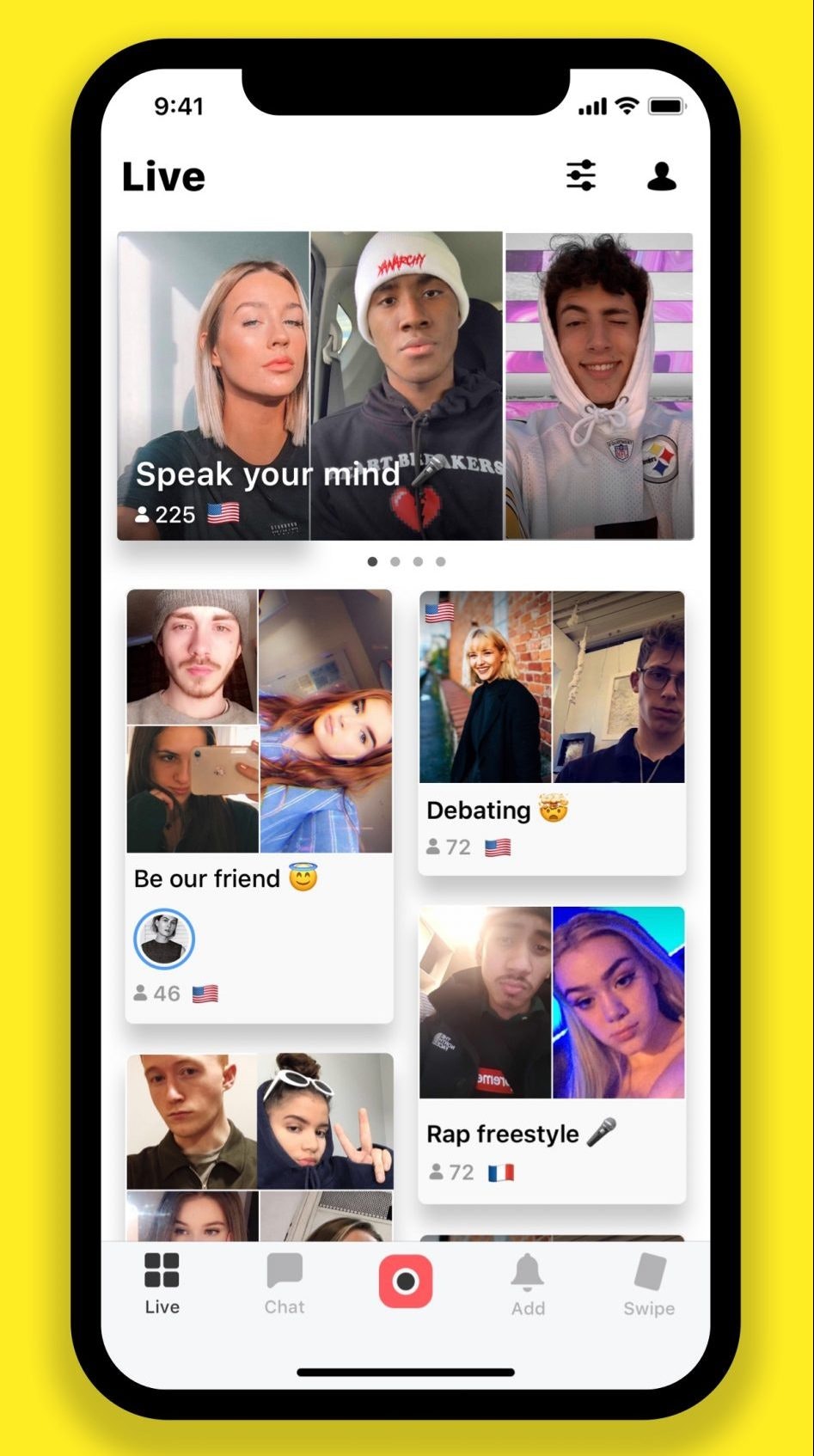Yubo, one of Europe’s only social apps that has expanded around the globe to countries including the US, has raised €40m to further improve its app.
Created by 27-year-old Sacha Lazimi in Paris, Yubo is tailored to teenagers and young adults, promising a better experience than Snapchat or TikTok thanks to more chatting and less passive scrolling.
Launched in October 2015, the app was edging close to the 40m user mark when Sifted interviewed Lazimi in September. It has now surpassed 40m across 40 countries, and plans to expand further into regions including Asia.
The startup also expects to double sales this year to $20m.
“Our vision hasn’t changed: we want to create a place where young people can relax, have a nice time, discover the world, but also discover themselves,” says Lazimi.
Lazimi is convinced that digital natives are hungry for online interactions that focus on just having a nice time with peers — with no influencers and followers, likes to try and gather, or online showing off to do. 80% of Yubo’s users are aged 16 to 21, and more than half live in North America.
Investors including Idinvest, Iris Capital, Alven, Sweet Capital and Gaia Capital Partners participated in the round, which is Yubo’s third.
Yubo plans to use the funds from the latest raise to add more functionalities to its app, which already includes games like “would you rather” or “let them guess” that users can play as ice-breakers. It has a partnership with Snap to use Snapchat’s filters directly in the Yubo app.

Attention grabbing
Part of what has grabbed the attention of investors is Yubo’s business model, which is more similar to a mobile video game’s than Facebook’s.
While most social networks make money from distributing content, cashing in on user data and building their business around advertising — Yubo is going down a different road.
There’s no advertising on the platform. Instead, Yubo is implementing the kinds of “freemium” models that games from Clash of Clans to Candy Crush have made familiar to consumers.
Its users spend as little as $2 to buy premium features that let them do things like pushing their chat group to the top of Yubo’s home page for a couple of minutes. A monthly subscription to premium features is worth about $10/month.
“We’re the only social network with this gaming model,” Lazimi told Sifted. “We don’t sell our users’ data, no users come to our platform to make money, and there are no influencers for people to gather around.”
Old school social
Yubo is trying to go back to the basics of social networking: just linking people together in the digital world.
While social media giants focus on content and give increasing space to superstar influencers, the startup has bet instead on mimicking online the real life social interactions of teens: going to a party, finding a small group of people and joining the conversation.
The most popular configuration on Yubo is four or five people joining the same chat room around video, audio and text exchanges. As ice-breakers, users will often share a group game of Pictionary, or play “would you rather” or “let them guess” (the game where you mime a concept for others to guess).
Most people who talk there don’t know each other in real life, none of them are famous, and the point isn’t to gain followers or even bulk up your contact list.
What is next for the app? It expanded to a new London office in September with several UK hires and plans to reinforce its presence in English-speaking countries, as well as expand across Asia.



